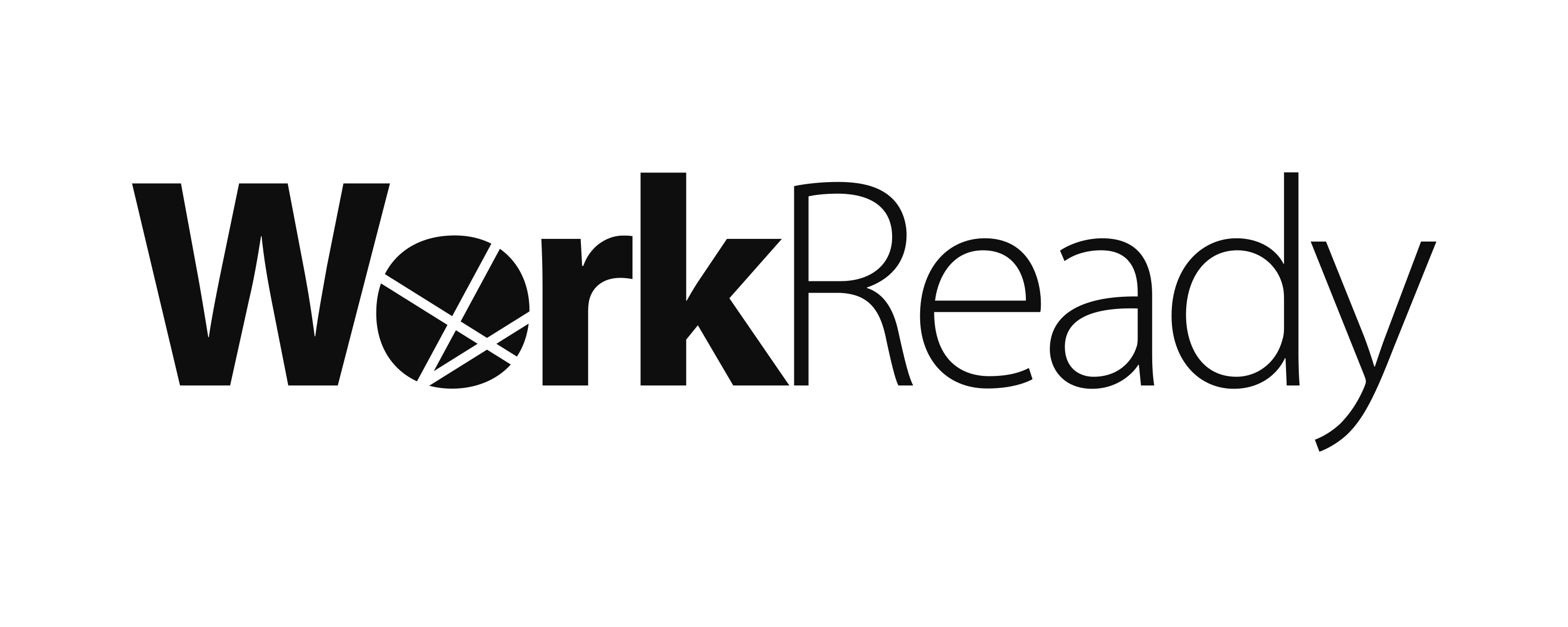Studying With Recognition First
As an adult learner you are expected to take responsibility for your own learning. This means that you must make ongoing progress in your qualification and be an active and engaged student. Students who are not active and do not make progress in their course will not be successful in attaining their qualification, which could be essential to remaining employed. Students must:
- contact Australian Early Childhood College with any questions about their study
- submit assessments on a regular basis, and meet any due dates that have been negotiated
- ensure submitted work is at an acceptable standard and conforms to the Requirements For Written Assessments
This document has been developed to provide students with an understanding of their responsibilities and what will be expected of them when undertaking a training and assessment program with our organisation. Australian Early Childhood College (Recognition First) typically provides training programs that are often called distance, or flexible delivery mode, and while this program does not require you to attend classes you will need to allocate time to your study. This document outlines the study and practice activities students will need to undertake, as well as a guide to how much time should be allocated to a typical qualification.
This document outlines a "typical" program and will be familiar to many of our students. It must be remembered though that Australian Early Childhood College also works very closely with organisations, employers and students to create individualised training and assessment programs. Your program may be one where you attend workshops and complete in-class tasks. This document should be read with this in mind.
Clustered Training and Assessment
Australian Early Childhood College were one of the first RTOs to be able to offer the new Children's Services Qualifications, which were introduced in late 2013. We have clustered certain units together where they are similar and/or fit logically together into meaningful groups. This means that repetition of assessment is avoided where possible.
About Us
Recognition First has changed its trading name to the Australian Early Childhood College and continues to work with children's services around Australia. Our systems,procedures and resources have been designed to ensure staff are trained and supported to achieve best quality graduates for the sector. We are also a Registered Training Organisation (RTO) and our registration is regulated by the Australian Skills Quality Authority (ASQA).
Our Program Methodology
The College only works with students who are employed in regulated early childhood services. We have thousands of graduates across Australia supporting early childhood programs.
Research tells us that the best training happens as coaching models within organisations. We refine and master our skills and behaviours by working within our role not by being taken away to complete "training". We believe that “preservice training” does not graduate work ready staff, while work based training and assessment allows skills to be embedded in practices.
Many current programs require only minimal work practice hours Certificate III complete only 160 hours practice and Diploma only 280 hours. Our students work on average for 12 months for Cert III and 2 years for Diploma, as staff they learn and practice to work standards not merely student levels, directed activities target and focuses student skill development.
Our training and assessment program is broken into three main areas:
- Part 1 Theory – focus on underpinning knowledge, research and understanding
- Part 2 Work skills – student reflection and third-party report from workplace supervisor
- Part 3 National standards – regular visits allow quantitative assessments over time, assessor can provide independent feedback on skill level across sector, also supports young/inexperienced supervisors/managers as they bring a broader view.
Mentoring and professional conversations with colleagues and managers supplement this. Theory makes sense as links are drawn to practice, theory now has meaning we know this enhances how people learn and retain information. Workplace culture and pedagogy is embedded in their learning and development.
We believe contact for reflection, discussion and introduction of ideas and research is the key to success in learning, to support this the College provides the following supports:
- Regular planned visits– for training discussion, to check on work completed, observation of skill development. Visits also allow for regular feedback discussions and reporting on progress to student, service manager and lead educators.
- Phone – we recommend regular contact with trainers, students are encouraged to call, study time can then be supported and targeted. AECC ensures a trainer is always available in the office for support between 8.30 and 4.00 Monday to Friday (this will be available across all States)
- Email/ Texts are generally responded to very quickly our commitment is within 24 hours Monday to Friday
- Skype is an increasingly valuable resource, especially with high needs students
- NEW night contact times are being trialed in coming months, so students can call or join a skype session of an evening.
Australian Early Childhood College is committed to creating our program, in partnership with the workplace/employer. We train in New South Wales, Australian Capital Territory, South Australia, Victoria and Queensland and have trainers who support and visit students in their workplaces while they complete workbased distance training and assessment programs in Early Childhood Education and Care.
RTO
A Registered Training Organisation (RTO) in Australia is a vocational organisation which provides students with training that results in Qualifications and Statements of Attainment. These are recognised and accepted by industry and other educational institutions throughout Australia. RTOs can be State and Territory Government or privately owned training organisations. All RTOs in Australia and the qualifications they are registered to deliver are listed on a national database, Training.Gov.Au, also referred to as TGA.
Australian Early Childhood College (AECC) trades under two names:
- Australian Early Childhood College was established to support our large number of early childhood workplaces, staff and students. The college reflects our professional response to the needs of this very important workforce.
- Recognition First which is our original trading name and has supported students across a wide range of qualifications and work environments.
Capability
AECC is registered to train across Australia and has an eviable reputation of compliance. In over 20 years our RTO has never had even a minor non-compliance with any of our National or State/Territory based contracts and registrations. We have excellent relationships with State and Federal Departments of Education and Training.
To support the learning and assessment of students AECC is registered with many State Governments and have access to Government funding support. We currently have funding contracts with;
- ACT Government through their Training Initiative
- NSW Government through Smart and Skilled
- SA Government through their WorkReady program
- VIC Government through the Skills First program
AECC traines and assesses hundres of early childhood staff every year across the ACT, NSW, SA and VIC. We have a strong base in each Stae with links to the early childhood sector and an understanding of the learning culture across the sector and the complexities faced by individual regions.
Quality of trainers
Students learn best from trainers who understand their learning jounrye and fully "know" the work environment they are working in. All AECC trainers have a rich history of working in the early childhood sector. when selecting staff, the core criteria for AECC is their experience with, and attitute to, children in an education and care environment. Candidates who hold at least Bachelor's degrees are targeted in combination with demonstrated careers that have progressed through trainees to childcare management. We do not want trainers who are looking for a way to escape the childcare floor but rather the Centre Managers and Educational Leaders who want to share what they know with others to expand their knowledge while working with children.
All our trainers have current experience within the sector and have all worked within the National REgulations, Standards, framework and Regulatory requirements. They stay up to date with regularwork practice and links to local early childhood services, they are talented and experienced educators and leaders, many of whom have been with us for over 10 years.
This means our trainers are very comfortable in services and see visits to workplaces as an oppotunity to reconnect with children while they support their students' learning. Our trainers work alongside their students helping, modelling and sharing their years of experience to support the individual needs of each student.
AECC supports the development of our trainers and professional development opportunities involve support in gaining higher education skills in b oth the training and assessment field and childcare field.
Why should you choose us?
AECC has a commitment to 'individual training' which recognises the uniqueness of learners. This supports the idea that not all students have similar backgrounds, so we aim to meet individual needs and provide individual training plans and learner pathways.
Research confirms tht work-based training and assessment allows skills to be embedded in practices. AECC is committed to work-based learning and has spent the last 20 eyars continuously improving our processes and procedures.
The core requirement for AECC is working with organisations that support the ongoing learning of their staff. Our students are exposed to real interactions and practices while they study, learning and assessment relates to their work and the pedagogy and culture of the individual service and organsiation.
All training and assessment materials are created in-house. This process utilises the history, experience, and passion of AECC staff. During our most recent ASQA audit in 2020 our materials were praised and noted as being sector leading as they focus on real world applications and immersing students in the environment around them.
Scope of Registration - this is the list of qualifications we are approved to issue. Follow the link and click on the 'scope' tab.
Qualifications - information about the qualifications we offer.
Student Information
This section is especially for current and prospective students of Recognition First to provide you with links to our relevant Policies, Student Handbook and enrolment information, as well as providing RPL and Credit Transfer information, information and resources specific to the are in which you are training and also information about how we can support you via e-learning pathways.
Requirements for Written Assessments
Student Handbook - Children's Services Version
Recognition of Prior Learning and Credit Transfer
Student resources:



